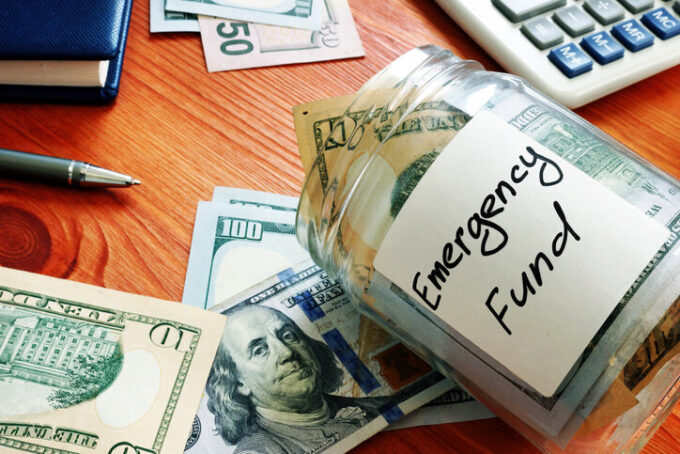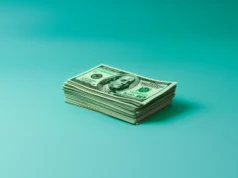Have you ever stopped yourself before paying a bill or making a purchase and wondered if this a smart thing to do with your money? It’s amazing to think of how many times per day we deal with financial transactions. Money is a huge part of every working person’s life, so it’s essential to get a feel for what’s smart and what’s not-so-smart when it comes to using our hard-earned capital. Here’s a short list that includes five of the best things you can do to boost your financial health, followed by five that are not-so-wise.
Smart Moves
Smart financial moves tend to include preparing for the future, accessing funds from the right places, and getting rid of high-interest debt. While it’s certainly never too late to save for the future, the early you can start the better in order to maximize savings and allowing the money to grow over time. Here are moves you can start today.
1. Pay for Retirement Advice:

You get what you pay for, particularly when it comes to financial advice for retirement. Fortunately, you won’t have to shell out much cash for a consultation session with a professional retirement counselor. You’ll find out where you stand, how much you’ll need to save to build a comfortable lifestyle and learn the practical steps involved.
2. Selling a Life Insurance Policy:
Using a life settlement to turn an unneeded or unwanted life insurance policy into cash is a wise way to boost your personal bottom line. If you don’t know how the process works, you can review an online guide that tells you everything you need to know about how to sell a policy via a life settlement. Many companies offer the service, and several actually specialize in helping people get the best price for their policies like policybank.com and other reputable members of the life settlement niche.
3. Contribute to an Emergency Fund:

As soon as you get rid of high-interest debt, you should begin creating an emergency fund and contributing to it. Aim to fill it with about three months of your typical earnings. Also, expect to spend up to a year to complete this essential, if challenging task. You can free up extra money but cutting the cable cord, cancelling your unused gym membership, or avoid going out to eat and opting to cook at home.
4. Review and Adjust Your Budget:
Here’s where it pays to get serious and spend time. Go over your monthly budget with a magnifying glass, searching for expenses that could be narrowed down or eliminated altogether. Don’t forget to look at the asset side of the ledger and see if there are any ways to boost income. Consider taking a micro job (five or ten hours per week) if that would help smooth things out or build your emergency fund a little faster. Additionally, think of assets you own that might bring in a one-time infusion of cash, like an unneeded car or a life insurance policy.
5. Minimize Credit Card Debt:

Credit card debt is the single greatest threat to your monetary health and should be eliminated as quickly as possible. If you hold several cards, deal with the highest-interest one first and then move down the list from there. Don’t go overboard and cut up all your cards after paying them off. The key thing to remember with plastic is to use it wisely and rarely. If you do that, your credit rating will slowly rise as you prove that you know how to handle credit responsibly. Keeping your account open with a zero balance can help boost your credit score every month.
Five Not-So-Smart Moves
Unwise actions related to your finances include purchasing brand-new cars, getting priorities mixed up, shopping without knowing what you need to buy, setting tax withholding rates too high, and storing money in your home. Here are the details.
1. Buying a New Car:

Even if you love cars and can afford to buy a new one, avoid the urge. Brand-new vehicles are among the most overpriced consumer goods on the market. Plus, their actual resale value goes down very quickly as soon as they are one year old. So, do what lots of clever wealthy people do and buy cars that are one or two years old but have low mileage. When you go to resell them, you’ll be able to recoup a substantial portion of the purchase price and will still have the luxury of driving a new-looking and good running car with a lot of warranty left on it.
2. Doing Things in the Wrong Order:
It’s far too easy to do important tasks out of order. For instance, you should pay off high credit card debt before building an emergency fund. And only after doing those two things should you consider putting money aside in an investment portfolio, acquiring precious metals, or buying a small amount of cryptocurrency. There’s nothing wrong with any of those things, individually. But work to get the order right and you’ll be doing yourself a big financial favor.
3. Shopping Without a List:

This is an old but very powerful technique. Using a list to shop for groceries or clothing can keep you from spending too much. Allow yourself one item per trip that’s not on the list, and that’s only when you forget to write down an essential entry before heading to the store.
4. Over-Withholding Taxes:
It’s a wonderful feeling to receive a huge check from the government in January or February in the form of a tax refund. But if you set your withholding rate just right, you’ll have more money throughout the year and can set the excess to auto-save via a payroll savings plan or your regular method of putting a percentage of income aside each month.
5. Storing Cash at Home:

Cash, and even precious metals, are easily destroyed in house fires. They’re also susceptible to theft, flood damage, and being lost. Keep most of your money in a bank.
Consider storing other valuables in a safe-deposit box. Never keep more than a small amount of emergency money at home.









